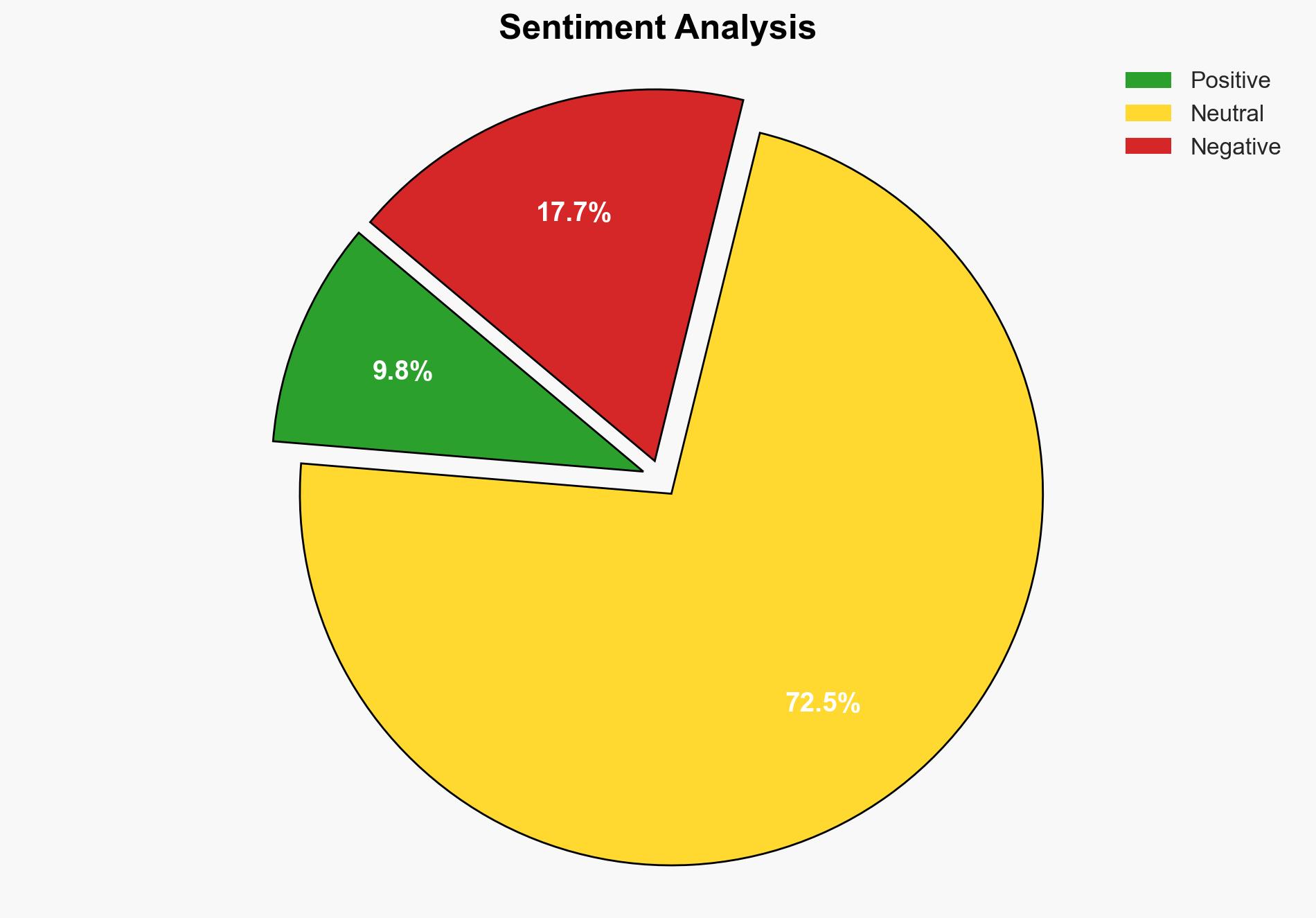Iran allies hold annual pro-Palestinian rallies – Japan Today
Published on: 2025-03-28
Intelligence Report: Iran allies hold annual pro-Palestinian rallies – Japan Today
1. BLUF (Bottom Line Up Front)
Recent pro-Palestinian rallies in Iran, Iraq, Yemen, and Lebanon highlight a coordinated effort by Iran and its allies to demonstrate support for the Palestinian cause and opposition to Israel. These events, marked by large public gatherings and anti-Israel rhetoric, underscore the ongoing geopolitical tensions in the region. The rallies serve as a platform for Iran to reinforce its influence over allied groups and to galvanize public sentiment against perceived adversaries, notably Israel and the United States.
2. Detailed Analysis
The following structured analytic techniques have been applied for this analysis:
General Analysis
The rallies, held during the Muslim holy month of Ramadan, are part of an annual tradition initiated by Ayatollah Ruhollah Khomeini. The events are strategically significant, as they bolster Iran’s foreign policy stance and reinforce its leadership role within the “axis of resistance” against Israel. The participation of groups such as Hezbollah and the Houthi rebels, along with public statements from key figures, indicates a unified front against Israel. The rhetoric used during these rallies, including chants and placards, reflects deep-seated animosity and a call for continued resistance.
3. Implications and Strategic Risks
The rallies pose several strategic risks, including heightened regional tensions and potential escalation of conflicts involving Israel and its adversaries. The public demonstrations of support for Palestinian militant groups could embolden these organizations, potentially leading to increased hostilities. Additionally, the rallies may strain diplomatic relations between Iran and countries aligned with Israel, impacting regional stability and economic interests.
4. Recommendations and Outlook
Recommendations:
- Enhance intelligence monitoring of regional activities to anticipate potential escalations.
- Engage in diplomatic efforts to de-escalate tensions and promote dialogue between conflicting parties.
- Consider technological advancements to improve surveillance and communication capabilities in the region.
Outlook:
In the best-case scenario, diplomatic interventions could lead to a reduction in hostilities and a stabilization of regional relations. The worst-case scenario involves an escalation of violence, potentially drawing in additional state and non-state actors. The most likely outcome is a continuation of the status quo, with periodic flare-ups and ongoing geopolitical maneuvering.
5. Key Individuals and Entities
The report mentions significant individuals and organizations, including Ayatollah Ruhollah Khomeini, Ayatollah Ali Khamenei, Ahmad Reza Pourdastan, Fatemeh Mohebbi, Qadhim Al Fartoussi, Naim Qassem, and Hassan Nasrallah. Key entities include Iran, Hezbollah, the Houthi rebels, and Palestinian militant groups.




